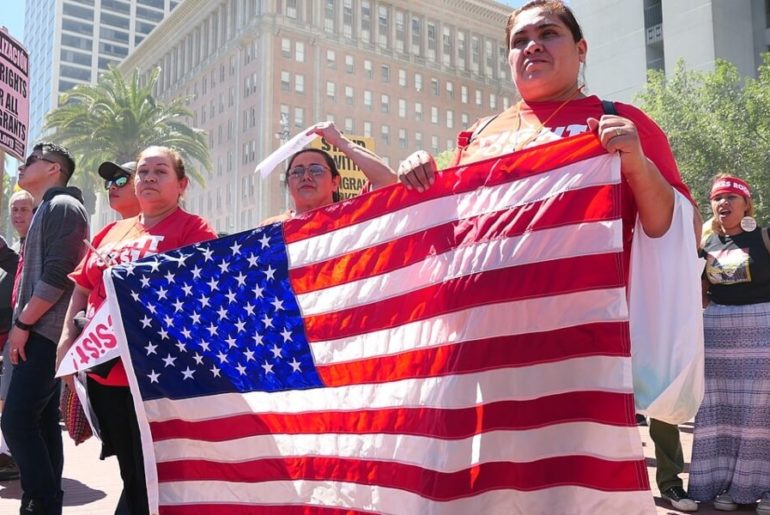In early March, President Joe Biden’s administration announced that it will end an immigration rule that would have made it harder for people who are elderly, have disabilities or problems with their health, come from countries where English isn’t spoken, or have relatively low incomes, to immigrate to the United States or get their green card.
In March, the Department of Homeland Security under Biden said it was rolling back enforcement of the “public charge” rule, which created stricter financial rules for people seeking lawful permanent resident status in the United States. United States Citizenship and Immigration Services (USCIS) said it will stop applying the 2019 Public Charge rule to all pending immigration applications and petitions as of March 9.
Though regulations about which immigrants should be deemed eligible for visas have been on the books for more than 100 years, some presidents have enforced the rule more than others.
Former President Donald Trump put into effect strict enforcement of the public charge rule that made it harder for some immigrants — especially those who are poorer, have large families, have health issues or disabilities, or who don’t have a lot of education — to get permanent resident status if immigration authorities thought they may need financial assistance in the form of food stamps or other public aid.
After some Democrats sued the Trump administration over the rule, a federal court blocked it in November 2020, just a few days before Trump lost the presidential election against Biden.
In late March, after the Biden administration announced the rule change, some Republican state officials, led by Texas Attorney General Ken Paxton, are taking their objection to the rollback of the public charge rule to the Supreme Court.
You may have some questions about how the new rule affects immigrants in the United States and family members who are trying to immigrate, such as:
- How does this rule affect immigrants?
- Will the rule change again?
How does this affect immigrants?
The good news is that if you have already gone through the process of getting a visa or becoming a United States citizen, whatever happens with this rule will not affect you or your family who are already legal permanent residents or citizens.
To find out more about how this rule change will affect you or your family’s residency application, you should speak to your immigration attorney or advocate. If you need a lawyer or advocate, visit Pro Bono Net and the Immigration Advocates Network.
Will the rule change again?
We can’t say for sure what the Supreme Court or any other federal judges will say in the Republican lawsuits that are looking to reinstate the public charge rule will do, but for now, it seems like the rule is gone.
For more information about the public charge rule, visit Protecting Immigrant Families.

